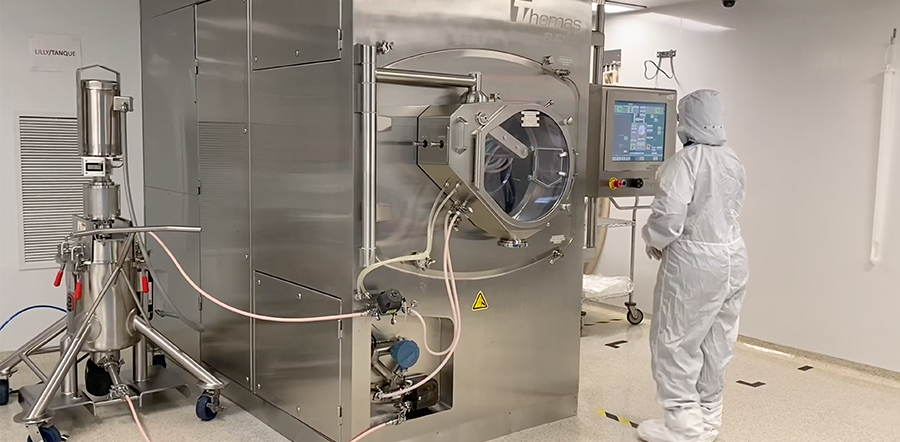July 29, 2021
Baricitinib is authorized for use under an Emergency Use Authorization (EUA) for treatment of COVID-19 in hospitalized adults and pediatric patients two years of age or older requiring supplemental oxygen, non-invasive or invasive mechanical ventilation, or extracorporeal membrane oxygenation (ECMO).
The authorization is based on data from the Phase 3 COV-BARRIER study as well as data from the Adaptive COVID-19 Treatment Trial (ACTT-2) conducted by the National Institute of Allergy and Infectious Diseases (NIAID), part of the National Institutes of Health (NIH). COV-BARRIER is a randomized, double-blind, placebo-controlled clinical study to assess baricitinib versus placebo in patients hospitalized with COVID-19 receiving standard of care which could include corticosteroids, antimalarials, antivirals, and/or azithromycin. The NIH-led ACTT-2 is a randomized, double-blind, placebo-controlled clinical trial which investigated a treatment regimen of baricitinib in combination with remdesivir in hospitalized adult patients with moderate to severe disease.
Baricitinib has not been approved by the FDA for the treatment of COVID-19. Baricitinib is authorized under an EUA only for the duration of the declaration that circumstances exist justifying the authorization of the emergency use of baricitinib under Section 564(b)(1) of the Act, 21 U.S.C. § 360bbb-3(b)(1), unless the declaration is terminated or authorization revoked sooner. Under the EUA, baricitinib is available as 1-mg and 2-mg tablets.
Multimedia and Resources
Important Safety Information
The following provides essential safety information on the unapproved use of baricitinib under the Emergency Use Authorization.
Warnings
Serious Infections: There is limited information regarding use of baricitinib in patients with COVID-19 and concomitant active serious infections.
Serious infections have occurred in patients receiving baricitinib. Avoid the use of baricitinib with known active tuberculosis. Consider if the potential benefits outweigh the potential risks of baricitinib treatment in patients with active serious infections other than COVID-19 or chronic/recurrent infections.
Thrombosis: In hospitalized patients with COVID-19, prophylaxis for venous thromboembolism is recommended unless contraindicated. If clinical features of deep vein thrombosis or pulmonary embolism occur, patients should be evaluated promptly and treated appropriately.
Abnormal Laboratory Values: There is limited information regarding use of baricitinib in patients with COVID-19 and any of the following clinical findings: absolute neutrophil count (ANC) <1000 cells/mm3, absolute lymphocyte count (ALC) <200 cells/mm3, and hemoglobin <8 g/dL.
Evaluate estimated glomerular filtration rate (eGFR), liver enzymes, and complete blood count at baseline and thereafter according to local patient management practice. Monitor closely when treating patients with abnormal baseline and post-baseline laboratory values. Follow dose adjustments as recommended in the Fact Sheet for Healthcare Providers for patients with abnormal renal, hematological and hepatic laboratory values. Manage patients according to routine clinical guidelines.
Vaccinations: Avoid use of live vaccines with baricitinib.
Hypersensitivity: If a serious hypersensitivity occurs, discontinue baricitinib while evaluating the potential causes of the reaction.
See Warnings and Precautions in the FDA-approved full Prescribing Information and Medication Guide for additional information on risks associated with longer-term treatment with baricitinib.
Serious Side Effects
Serious venous thrombosis, including pulmonary embolism, and serious infections have been observed in COVID-19 patients treated with baricitinib and are known adverse drug reactions of baricitinib.
Adverse Reactions
In the COVID-19 clinical trials, adverse drug reactions in the safety population occurring in ≥ 1% of patients treated with baricitinib were alanine aminotransferase (ALT) ≥3 x upper limit of normal (ULN) (18.0%), aspartate aminotransferase (AST) ≥3 x ULN (11.5%), thrombocytosis >600,000 cells/mm3 (8.2%), creatine phosphokinase (CPK) >5 x ULN (3.7%), neutropenia <1000 cells/mm3 (2.2%), deep vein thrombosis (1.5%), pulmonary embolism (1.4%) and urinary tract infection (1.3%).
Use in Specific Populations
Pregnancy: Baricitinib should be used during pregnancy only if the potential benefit justifies the potential risk for the mother and the fetus.
Renal Impairment: There are limited data for baricitinib in patients with severe renal impairment. Baricitinib is not recommended for patients who are on dialysis, have end-stage renal disease, or have acute kidney injury.
Hepatic Impairment: Baricitinib has not been studied in patients with severe hepatic impairment. Baricitinib should only be used in patients with severe hepatic impairment if the potential benefit outweighs the potential risk.
Please see Fact Sheet for Healthcare Providers and Fact Sheet for Patients, Parents and Caregivers (English) or Fact Sheet for Patients, Parents and Caregivers (Spanish).
BC HCP EUA ISI 28JUL2021
PP-BC-US-0084 7/2021 ©Lilly USA, LLC 2021. All rights reserved.



